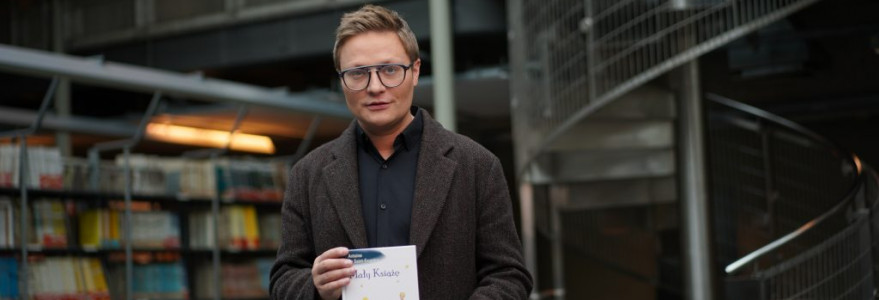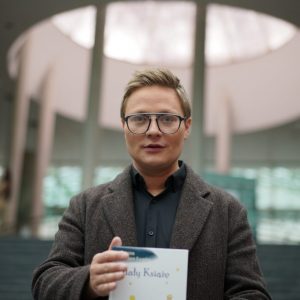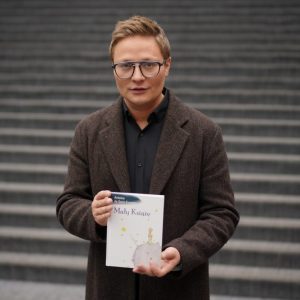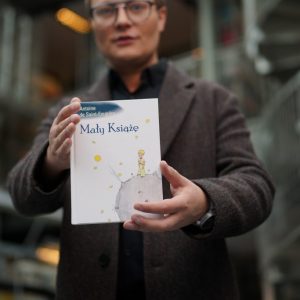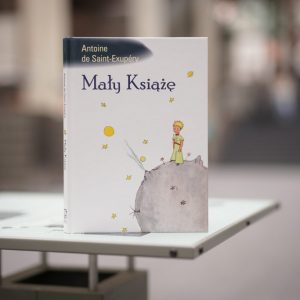“When I read The Little Prince for the first time, I think I was in middle school, it totally enchanted me. I have returned to it many times,” in these words, Mateusz Szymkowiak, a reporter and TV presenter, as well as a sociology graduate of the University of Warsaw, described Antoine de Saint-Exupéry’s book. We are publishing the first episode of the fourth edition of the series “Read with the UW”.
Mateusz Szymkowiak is a reporter and presenter, considered one of the most interesting TV debuts in recent years. He is associated with Polish Television and Iberion. As a presenter, he hosted, among others, the concerts of the National Polish Song Festival in Opole, and Eurovision Junior. For years, he has been reporting on the most important national and international entertainment and cultural events. He also publishes his column on culture in the “La Vie” magazine. Mateusz Szymkowiak studied sociology at the Faculty of Applied Social Sciences and Resocialisation at the University of Warsaw.
“I find a book, after feelings and emotions, the most beautiful gift one can give another person,” says Mateusz Szymkowiak, a reporter and TV presenter, as well as a graduate of the UW. “When I read The Little Prince for the first time, I think I was in middle school, it totally enchanted me. I have returned to it many times,” he adds.
Five hundred million little bells
The philosophical tale by Antoine de Saint-Exupéry entitled The Little Prince is a masterpiece of world literature. It is a universal story about love, friendship, trust and caring for another being.
“I often read the book in excerpts, recalling the quotes,” Mateusz Szymkowiak says, and gives examples: “And now here is my secret, a very simple secret: It is only with the heart that one can see rightly; what is essential is invisible to the eye” or “It is much more difficult to judge oneself than to judge others. If you succeed in judging yourself rightly, then you are indeed a man of true wisdom” or “And I love to listen to the stars at night. It is like listening to five hundred million little bells”. And the most beautiful one: “You become responsible forever for what you have tamed.”
A multiplicity of meanings
The book is ambiguous. In a literal sense, it can be seen as a children’s fairy tale, but the work also has the characteristics of a parable. The characters, objects and situations described therein are the starting point for reflections on human relationships, loneliness and life’s most important values. The reading is filled with life wisdom and aphorisms, as well as symbols.
“The symbols contribute to the deep message of the book, which triggers reflection on the essence of interpersonal relationships and the value of simplicity in life,” explains Mateusz Szymkowiak, adding: “It is a story about growing up to true friendship and love.”
Antoine de Saint-Exupéry was born on 29th June 1900 in Lyon, France. He came from an aristocratic family. He was interested in aviation. In his works, he indicated the ideals of humanism, arguing that to write one must live and have something to say. He published The Little Prince, a philosophical tale aimed at both young and adult readers, in 1943. He died tragically on 31st July 1944 during a reconnaissance flight.
The Little Prince has been translated into more than 270 languages. The most popular edition of the book is the one with the author’s illustrations from 1942.
Antoine de Saint-Exupéry’s book The Little Prince can be found at the University of Warsaw Library in open access in the Language. Literature section.



